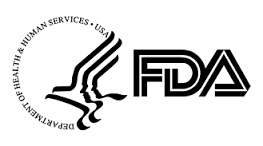 Safety/Quality
Safety/Quality
Study: Surgeries improve survival in young BRCA-positive breast cancer patients

Editor's Note Preliminary research shows removing breasts or ovaries can significantly improve survival and reduce recurrence risk in young breast cancer patients with BRCA mutations, HealthDay reported December 13. The findings were presented this week at the San Antonio Breast Cancer Symposium. According to the article, researchers analyzed data from…
Study: Advanced recovery room care could reduce long-term postoperative mortality

Editor's Note Findings from The ARRC II study show using advanced recovery room care (ARRC) for medium-risk surgical patients significantly reduces 18-month postoperative mortality compared to standard ward care. As detailed in a December 11 research letter in JAMA Surgery, this benefit appears linked to minimizing early postoperative complications, which…
FDA designates Class 1 recalls for balloon catheters, radiographic markers

Editor's Note Balloon catheters for atrial fibrillation patients and implantable radiographic markers were the subjects of separate US Food and Drug Administration (FDA) Class 1 recalls—the most severe category indicating risk of serious injury or death—announced on December 18. The first recall involves Boston Scientific’s POLARx Cryoablation devices. Higher-than-anticipated reports…
Orthopedic surgery in 2025: Embracing innovation, preserving autonomy

Editor's Note With 2024 concluded, orthopedic surgeons and surgical leaders are poised to leverage new technologies while addressing challenges in autonomy and value-based care in 2025, Healio December 17 reports. Ambulatory surgery centers (ASCs) have proven critical in providing cost-effective, patient-centered care, the author noted, highlighting that physician-led ASCs showcase…
Medtronic, Zimmer Biomet challenge Intuitive Surgical’s robotic surgery dominance

Editor's Note Robotic-assisted surgical procedures are no longer futuristic—they are becoming a mainstay in modern ORs. While Intuitive Surgical’s da Vinci system has led the market since 2001, competitors Medtronic and Zimmer Biomet are building innovative portfolios to challenge its dominance, MarketBeat December 12 reports. Medtronic’s Hugo Robotic Assisted Surgery…
Anthem’s anesthesia time limit policy, reversal sparks new legislation

Editor's Note Anthem Blue Cross Blue Shield recently reversed its controversial plan to impose time limits on anesthesia coverage after intense backlash from the medical community, including anesthesiologists and patient advocates. The policy, aimed at curbing alleged overbilling, would have restricted payments based on average surgery times, a move critics…
Simple procedure or ‘surgery’? Questionable medical billing practices cause confusion

Editor's Note Certain medical bills reclassifying minor procedures as “surgery” are driving up costs and causing confusion among patients, KFF Health News December 13 reports. Cases such as a $414 charge for a splinter removal with tweezers and a $469 charge for freezing a skin tag highlight how CPT codes…
Surgeons emphasize bariatric surgery benefits amid rising GLP-1 drug popularity
Editor's Note Bariatric surgery programs nationwide have reported a 20-25% decline in surgical volumes over the past year amid the rising use of glucagon-like peptide-1 (GLP-1) medications for obesity, OR Management News reported Dec 2. Although the connection between the decline and the popularity of the drugs cannot be definitively…
Study: Geriatric surgery program improves outcomes, independence

Editor's Note Older cancer patients undergoing major abdominal procedures at Roger Williams Medical Center in Providence, Rhode Island, significantly benefitted from the American College of Surgeons (ACS) Geriatric Surgery Verification (GSV) program, Medical Xpress reported December 10. Citing a study published in the Journal of the American College of Surgeons,…
Milestone pig kidney transplant offers hope amid ethical, safety questions

Editor's Note A 53-year-old woman with end-stage kidney failure became the first living person to receive a genetically modified pig kidney in a milestone surgery at NYU Langone Health, NPR reported December 17. Although the experimental procedure marks significant progress toward addressing organ shortages, it also drew commentary on ongoing…

 Free Daily News
Free Daily News